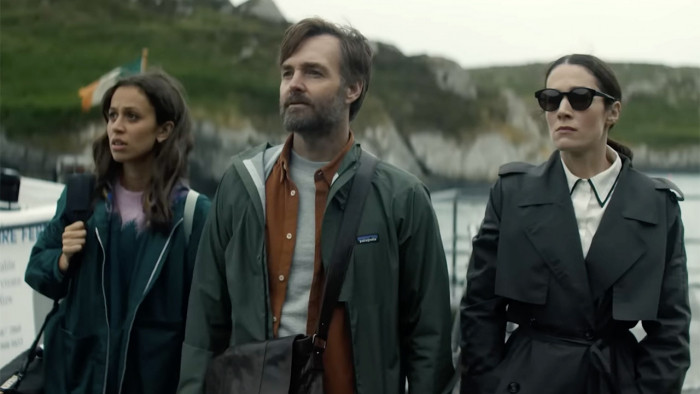After Adam’s behaviour on 'Love Island', what exactly is gaslighting?
Here's everything you need to know about gaslighting - so you can avoid it at all costs


It’s that sunny, sweaty time of year again and the entire nation is hooked on Love Island. What started as something of a trashy reality show has morphed – perhaps accidentally – into a fascinating study of the modern human psyche. Viewers get to analyse these poor sods as every facet of their personality is splayed out before us like a dissected frog on a cold, hard counter. Most of the time, we love it.
But this week there’s been something of a backlash against one contestant: the obscenely muscular Adam Collard.
In his first pairing, he told partner Kendall, “I’ve done nothing to make you think that I would pick someone else” – after kissing a different girl, Rosie, and admitting he found her attractive.
Then on Tuesday’s episode, Adam got into an angry fight with his new partner Rosie, who accused him of ignoring her for new contestant Zara McDermott. Adam, however, countered that Rosie was simply overreacting and even suggested it was her own jealousy that had “pushed him away”.
Many on Twitter called his actions ‘manipulative’, with viewers angry that he appeared to be smiling as Rosie cried. His behaviour on last night’s episode sent Google searches for the term ‘gaslighting’ through the roof, while Katie Ghose, Chief Executive of the charity Women’s Aid, released a statement saying:
“On the latest series of Love Island, there are clear warning signs in Adam’s behaviour. In a relationship, a partner questioning your memory of events, trivialising your thoughts or feelings, and turning things around to blame you can be part of a pattern of gaslighting and emotional abuse.
“Rosie has called out Adam’s unacceptable behaviour on the show, and we ask viewers to join her in challenging unhealthy behaviour in relationships and speaking out against all forms of domestic abuse - emotional as well as physical. It is only when we make a stand together against abuse in relationships that we will see attitudes change and an end to domestic abuse.”
It should be remembered that Love Island is, after all, a TV show, one with a format that delights in putting contestants on emotional rollercoasters and that contestants on these sorts of programmes often play certain roles to fit that format. We can’t be totally sure if Adam’s playing up for the cameras (which is gross), if the editing is amplifying his behaviour (which is quite gross) or if he’s genuinely deplorable (very gross). Either way, it’s a great chance to talk about gaslighting and how it affects women’s and men’s lives.
Here’s everything you need to know about gaslighting, so you can work out if you’re being gaslighted, if your friends are – of if you’ve ever gaslighted someone else.
Gaslighting: What is it and how does it work?
In a statement provided to ShortList, Katie Ghose added: “From our work with survivors, we know that perpetrators of domestic abuse will use every tactic available to them to try to exert power and control over victims.
“Gaslighting is one tactic of coercive and controlling behaviour that aims to make a victim doubt themselves, their perception of events and even their own sanity, with devastating consequences.”

A couple arguing
Gaslighting: What are the signs to look out for?
“Gaslighting is an insidious form of domestic abuse that is, by its very nature, sometimes difficult for victims to recognise and build up the confidence to escape from,” Ghose said.
Some of the gaslighting techniques that abusers use to control and exert power over victims include:
1. Calling into question the victim’s memory of an incident
2. Trivialising a victim’s thoughts or feelings
3. Accusing the victim of lying or making things up
4. Denying things like promises that have been made
5. Mocking the victim for their “misconceptions”
Ghose went on: “This form of abuse can be subtle therefore some of the signs to watch out for include: if you are second-guessing yourself all the time, feel confused, find yourself always apologising to your partner, you are having trouble making simple decisions and find yourself withholding information from friends and family so you don’t have to explain or make excuses for your partner.”

A scene from the 1944 film Gaslight
Gaslighting: Where does the term come from?
The phrase ‘gaslighting’ derives from the 1938 stage play Gas Light by the British writer Patrick Hamilton, which was turned into a classic 1944 film starring Ingrid Bergman and Angela Lansbury. In the story, a husband manipulates and emotionally torments his wife, trying to convince her she’s losing her mind.
The phrase was brought back into the public’s consciousness when, in December 2016, Teen Vogue writer Lauren Duca published her article entitled ‘Donald Trump Is Gaslighting America’.
“As a candidate, Trump’s gas lighting was manipulative, as President-elect it is a deliberate attempt to destabilize journalism as a check on the power of government,” Duca argued.

Donald Trump has been accused of gaslighting America
Gaslighting: How common is it?
The ONS partner abuse survey in 2016, part of the Crime Survey of England and Wales, found that female partner abuse victims were much more likely to experience non-physical, emotional abuse like gaslighting (63%) as opposed to physical abuse such as force (29%) or threats (45%).
Male partner abuse victims were also more likely to experience non-physical abuse such as gaslighting (56%) rather than force (37%) or threats (31%).
Read more: What is ‘perspecticide’ - the dangerous dating behaviour that messes with people’s heads?
Gaslighting: What should you do if you think it’s happening to you?
Kate Ghose said: “Every survivor must be listened to, believed and supported. That’s why we at Women’s Aid work hard to raise awareness of all forms of abuse and offer expert support to those who are experiencing it and their friends and family.
“If you are worried that your relationship, or that of a friend or family member, is controlling or unsafe, visit www.womensaid.org.uk or call the Freephone 24/7 National Domestic Violence Helpline, run by Women’s Aid in partnership with Refuge, on 0808 2000 247.”
An ITV2 spokesman told ShortList: “Duty of care towards all of our Islanders is always of paramount importance. We have 24-hour security in place at the villa, and our islanders have ongoing access to an on site psychologist as well as show producers. Production will always intervene if they feel behaviour is unacceptable.”
(Images: ITV2 / Love Island / Getty)








